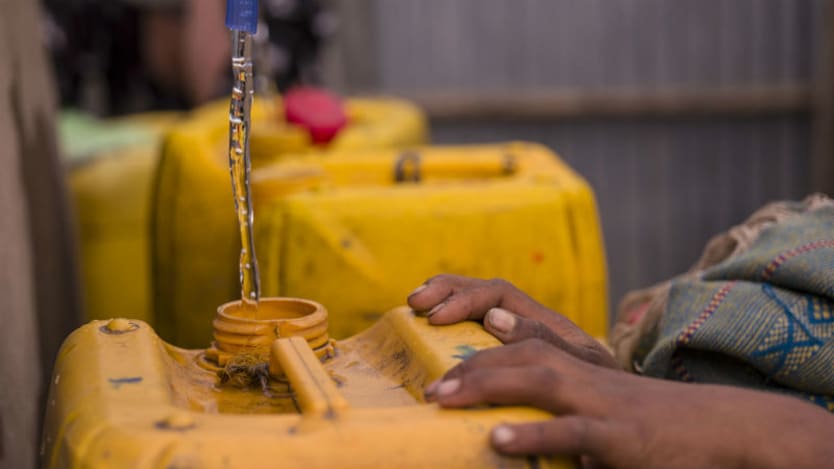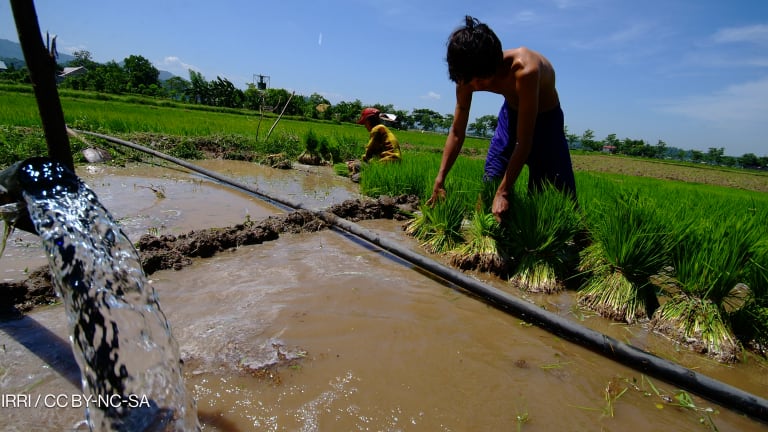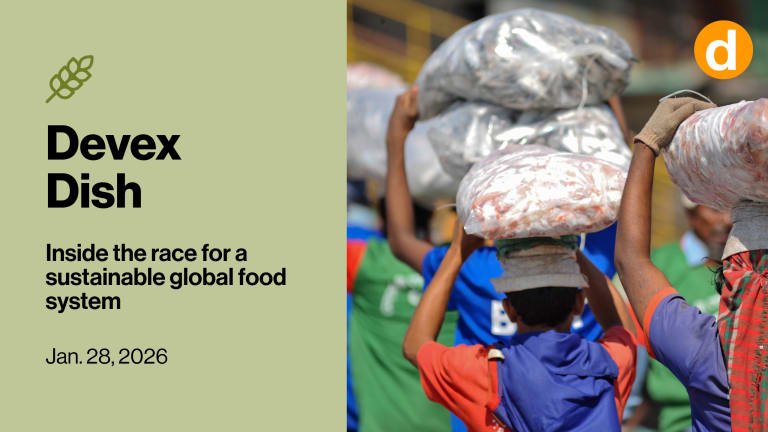
Every year, the World Economic Forum asks leaders from government, business, and civil society to rank their most pressing risks. For eight consecutive years, including 2019, water crises have been in the top 5. Water is up with climate change, extreme weather, infectious disease, and cyber attacks at the tip of the world risk pyramid.
It’s easy to see why. Every other area of global risk — energy, commerce, agriculture, war, human migration — becomes more severe when water is scarce, overflowing, polluted, or poorly managed. In particular, a lack of water is often a slow-moving crisis, but it can devastate economies, threaten lives and livelihoods, and can cause instability that echoes far beyond parched countries.
“Some countries’ plans for growth — including major energy infrastructure and agricultural projects — don’t consider water implications, and often require far more water than will be available.”
—Consider in 2018:
• Dwindling water resources in Mali spurred violence in clashes over natural resources that continue today.
• Cape Town, South Africa, almost ran dry, forcing its 3.8 million residents to consume 50 liters of water or less daily per person, for months, to forestall a “day zero.”
• In India, the government warned that the country is “suffering from the worst water crisis in its history and millions of lives and livelihoods are under threat.”
• Floods from Kerala to North Carolina claimed lives, devastated communities, and damaged property.
2019 brings its own challenges, with a 90 percent chance of an El Niño event likely to produce more severe weather disruptions, in addition to the shifting water resources caused by climate change with “misery in slow motion” consequences.
Water is a vital input for everything people do, from food production to energy extraction to supporting hygiene and health. Although there are water challenges on the horizon, we shouldn’t throw our hands up in defeat.
More on water:
► Challenges facing SDG 2030 deadline for safe water and sanitation
► Beyond wells and hand pumps: The next phase in the fight for clean water
► New results-based financing tool targets clean water for schools
There is reason for hope and cause for action on water challenges. Managing water like the essential substance that it is can help achieve water security.
3 steps toward water security
1. Take a water inventory
Countries need to first find out how much water they have, using the best available data and assessment frameworks. Even with drones and real-time data, good information about water remains spotty at best, especially on a country or global scale. World Resources Institute’s Aqueduct Water Risk Atlas is one of many tools available to create a better comprehensive, cross-sectoral picture of a country’s water landscape. Even when we don’t have perfect data, we have enough to start to take action.
2. Align water management with growth
We need to manage water thoughtfully, in alignment with plans for development, sustainable growth, and climate commitments. Cutting red tape and bureaucratic confusion would help.
Some countries have more than one agency in charge of water — the United States has more than 10 — while others don’t regulate water at all. There is often poor integration of water into plans for energy, agriculture, and urban development, even though it is an essential input for all of these sectors. Most worrying is that some countries’ plans for growth — including major energy infrastructure and agricultural projects — don’t consider water implications, and often require far more water than will be available.
This won’t work. Water targets must be created alongside development goals, taking into account the projected impact of climate change. Financing institutions and the private sector can help by working with governments to unite goals for water, climate, and development.
3. Invest in good water management
In our global economy, trade and goods flow, information is shared digitally, and issues such as climate change affect the entire planet. But while water is a global reality, it must be managed locally.
Although local water issues vary, there are best practices that can be replicated across various locations. Setting sustainable yields and requiring withdrawal permits, pricing to incentivize conservation and efficiency investments, wastewater treatment and reuse, restoration of nearby forests, and improved water infrastructure to minimize leaks are just a few solutions most countries can adopt to improve water security.
Make water a top priority
WRI and partners are starting to put these steps in place to create water management plans that recognize water opportunities and challenges.
In Ethiopia, we are working with the Ministry of Water, Irrigation and Electricity to make better information on current and future water risks available to more people to improve decision-making — looking at development plans that extend far beyond water, including for industry, agriculture, and urban growth. We look forward to expanding this work with other countries and partners in Africa and around the globe to create a network of countries that can share ideas on implementing water solutions.
While it’s true that 2019 will be another year where water is a top risk, it’s not too late to change course. Water can become a top priority if we begin managing it like it’s the most important substance in the world — because it is.








